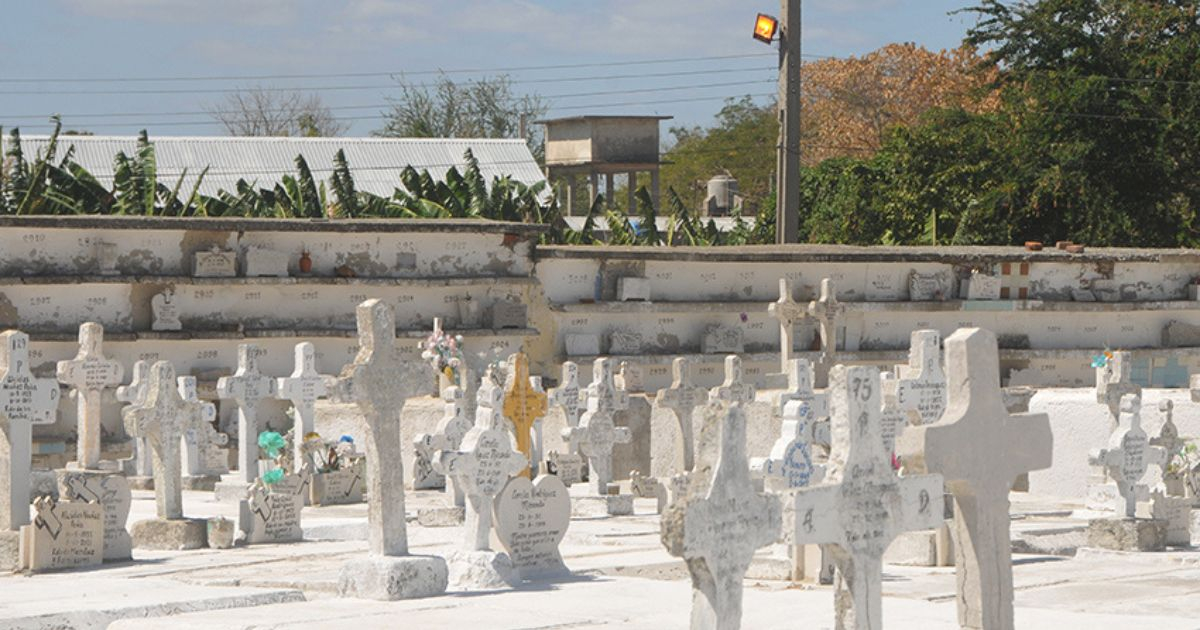The province of Las Tunas is the only one in the country without a crematorium, compelling residents to travel to other cities for this service. The state-run Periódico 26 reported that families of the deceased must go to Camagüey, Santiago de Cuba, or other provinces to cremate their loved ones, first processing the request through the Empresa de Comunales. This adds bureaucratic hurdles to an already painful time.
The fossil remains incinerator located near the Acinox company, where a new cemetery for the eastern city was planned, is also non-operational, further complicating the situation. Eiser Prieto Pons, Deputy Director of Hygiene and Necrology in the province, admitted, "The equipment is there, but civil construction work has not been completed, preventing its operation."
Prieto Pons explained that due to a lack of resources like cement, they have been unable to create "a removable slab to incorporate the other equipment needed for cremation." The province of Las Tunas has 64 cemeteries. However, the Vicente García cemetery in the main territory and the one in Puerto Padre city are in critical condition regarding space for ossuaries and niches.
The situation is exacerbated because the microlocation for new cemeteries in both cities is not fully defined, according to the news site. "Those previously clear locations are now subject to changes for various reasons," it added, without specifying the reasons that jeopardize dignified farewells for residents.
Meanwhile, cemetery workers carry out minor maintenance, which does not address the fundamental problem: the risk of not being able to bury the deceased due to lack of space. This issue has not taken the Las Tunas government by surprise.
The digital version of the weekly alerted in 2021 that with the increase in deaths due to the Covid-19 epidemic, the cemetery was overburdened. "Communal Services in Las Tunas is diligently working to create necessary capacities in the cemeteries to ensure this sensitive process proceeds without hitches," it noted.
The chaotic situation led to accelerating "the exhumation process of the bodies" to "reuse the space and facilitate the burial of the deceased." Another "strategy" was to use other cemeteries, such as Becerra and, as a last resort, Santa María.
However, three years ago, the space shortage problem was already foreseen, a situation that remains unresolved in Las Tunas.
The cemetery issue in Cuba often impacts the families of the deceased, who frequently see their loved ones' remains exposed due to the government's failure to invest in maintenance and improvements. Recently, human remains were exposed in the Bayamo cemetery after a wall collapsed, reported internet user Leosbel Luis Mojena.
In a Facebook reel, the young man claimed that dozens of remains were left exposed outside the premises following the collapse of the covering wall.
On a related note, exiled Granma doctor Alexander de Jesús Figueredo Izaguirre sarcastically remarked on Facebook that now one can "discover the history hidden in every corner of the revolutionary cemetery in Bayamo."
In April, young Cuban Camila Navarro, after visiting her grandfather's grave in the Colón Cemetery in Havana, encountered a scene of neglect and deterioration. The dancer, influencer, and personal trainer residing in Europe shared a video on Instagram showing the cemetery's deplorable state.
Cremation and Burial Challenges in Las Tunas
This section addresses common questions and concerns about the cremation and burial challenges faced by residents of Las Tunas due to the lack of a local crematorium.
Why do residents of Las Tunas have to cremate their loved ones in other provinces?
Las Tunas is the only province in Cuba without a crematorium, forcing residents to travel to other cities like Camagüey or Santiago de Cuba for cremation services.
What challenges do families face when seeking cremation services?
Families must navigate bureaucratic processes through the Empresa de Comunales and travel long distances, adding stress to an already difficult time.
What is the current condition of cemeteries in Las Tunas?
Cemeteries in Las Tunas, especially Vicente García and Puerto Padre, are critically overburdened and face severe space shortages.
How has the government responded to the cemetery space issue?
The government has implemented measures like accelerating exhumations and using alternative cemeteries, but these steps have not resolved the ongoing space shortage.
